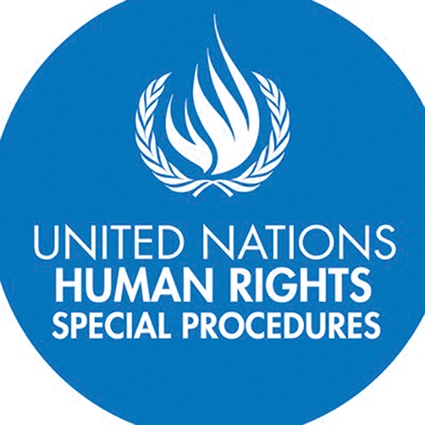Georgia Needs to Increase Human Rights Protection Efforts in the Business Environment
The United Nations Working Group on Business and Human Rights officially visited Georgia for the first time April 3-12 with the aim of assessing the impacts of business operations on Human Rights. Last Friday, to conclude the visit, the experts held a press conference at the Marriott Courtyard Hotel during which they described their preliminary observations before the official final report to be submitted in 2020. Different issues were raised during the conference, the main ones being gender equality, environmental pollution and labor rights.
In the construction sector specifically, labor rights are often violated. This has become a systemic issue since workers often put their lives in danger by working in this sector. The goal is to prevent Human Rights violations from happening in order to prevent the need for legal remedies.
The experts also visited the Chiatura mine and recognized it creates significant environmental pollution. The measures taken by the Georgian government are not adequate, they said, and do not prevent irremediable damage to the environment.
As for the development of natural resources, hydropower projects were seen as being able to help ensure electricity and power independence in Georgia; however, the UN team advised the Georgian government to look at the process globally and make sure that the use of hydropower does not create draughts nor has impacts on climate change.
“The government needs to take a holistic view when assessing the impact of the hydropower projects,” they noted.
The working group spoke of its appreciation for a number of legislative changes in Georgia, including a new labor code, new safety laws, and the environmental impact assessment code. They also appreciated the gender equality provisions for the protection of women against sexual harassment. However, they made it clear that gender equality remains one of the biggest challenges in Georgia. Women are underrepresented in business and represent an alarming minority in management positions. Violence against women is also still a major issue, they said.
“The Parliamentary Gender Equality Council should work to create a more inclusive environment for women in every field,” the UN team advised.
Concerning people with disabilities, they noted the disabled often face exclusion and discrimination and lack economic opportunities. The government has taken measures since it provides subsidies for four months to companies who hire a person with disabilities, after which the company has to hire the person for another six months. “However, this initiative is insufficient, and more measures are needed so that the disabled can access work opportunities,” the UN representatives said.
Last, the issue of remedies was raised. When there is a violation of Human Rights, individuals would like to be able to hold a company accountable for it. The judicial system is well established in Georgia, but, concretely, affected individuals have trouble accessing remedies from the court, perhaps due to the cost of litigation or because of the length of the judicial process. In this direction, the government is trying to give more responsibility to the Public Defender since it can be a good institution to complement the Court in providing effective remedies.
“Most companies do not have grievances mechanisms in place to deal with human and labor rights violations and the government should oblige them to have it,” the Working Group noted.
Overall, the group of experts appreciated the smooth running or their study and the open dialogue they had had with the stakeholders. They recognized that the Georgian government is moving in the right direction but said it should take more proactive measures in favor of these Human Rights issues.
By Gabrielle Colchen












